Table of Contents
Your alarm is set for 6 a.m., so you go to bed before ten the night before feeling good about giving your body a well-deserved eight-hour nap. But the bigger disappointment comes when midnight strikes, and you’re still staring at the ceiling. Eventually, you get lucky fortunately and fall asleep from exhaustion. A few hours later, however, that pesky alarm goes off again, and you open your eyes with a sense of weariness and familiar frustration.
Problems with falling asleep can have several causes. In today’s article we’ll show you some tips to help create ideal conditions for an undisturbed sleep.
Why is sleep so important?
Sleep is one of the essential functions that help to keep things ticking over in our bodies. Most adults should stick to the recommended 7 – 9 hours of sleep each night. If you sleep less than you need in the long run, your body would not be able to perform all of the behavioural and cognitive functions properly. This may manifest itself, for example, as loss of concentration or blackouts, delayed reactions or mood swings. You don’t want to experience any of these during work days.
If you sleep poorly, your sex life may also suffer because of a potential decrease in testosterone levels, which is associated with a lower appetite for sex. However, you are also at risk of greater cravings for food and less satisfaction after eating it. Sleep also has a great influence on the hormones of satiety and hunger (Leptin and Ghrelin). Therefore, if you are trying to lose weight, you should definitely not underestimate its importance. [1–5]
In the long run, however, sleep deprivation can also have much more serious impacts on health. For example, it has been associated with a higher risk of developing chronic diseases such as obesity, type 2 diabetes, heart disease or mental health problems. If you are one of those people who are able to fall asleep anywhere and at any time, that can be an advantage in this respect. But there are those of us who literally despair every night. They go to bed early, they’d love to fall asleep, they know they need to work hard to feel rested, and still, they can’t. If you’re not lucky enough to fall asleep quickly, we have some tips that can help you fall asleep and improve the quality of your sleep. [1]
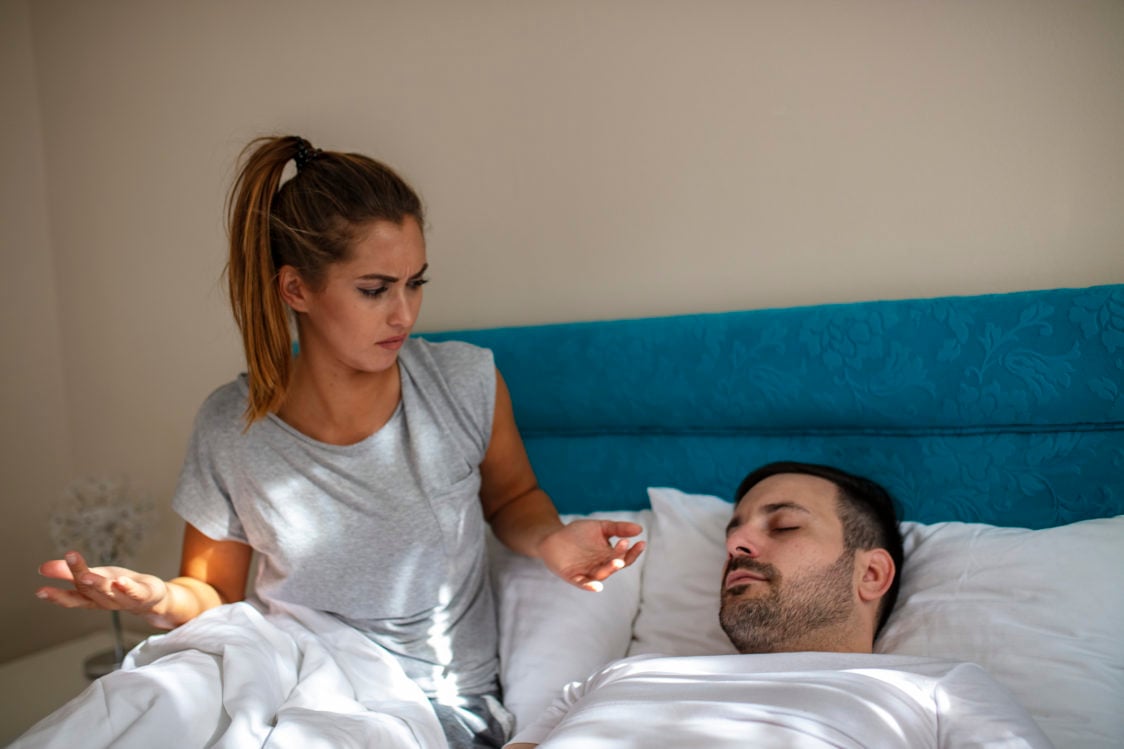
10 tips for a better quality sleep
Everyone has their own tips and tricks for a better sleep. Some people must take a hot shower, others don’t fall asleep unless they are lying on their side and in absolute darkness. Below, we present some simple tips that can have a big impact on the quality of your sleep. Let’s get into it!
1. Create the ideal sleeping conditions
Not underestimating preparation is the foundation of success. To pass an exam at school, you have to study for it. If you want to achieve maximum performance during training, you must warm up. Similarly, you should also focus on preparing for a quality sleep. Don’t worry, no one is asking you to smudge the room of negative energy, place dream catchers over the bed, and put a rock in every corner with calming powers. Focus on the simple steps, as they can really help.
- Air out your bedroom so you have fresh air circulating in it.
- Maintain your bedroom at a temperature between 15 – 18°C.
- Air out your quilts. In summer, you can leave them hanging out in the sun during the day.
- Don’t have too thick or too thin quilt.
- Get a good quality mattress or an orthopaedic pillow. If you like sleeping on your side, I personally recommend a special long pillow for this type of sleep (you can also find it under the name “pillow for side sleepers”).
- Close the blinds or curtains to keep the room dark. If the sun still wakes you in the morning, try sleeping with a mask on.
- Fall asleep and sleep in quiet surroundings. For example, if you live on a busy road, near a train station, or sleep during the day after a night shift, try earplugs.
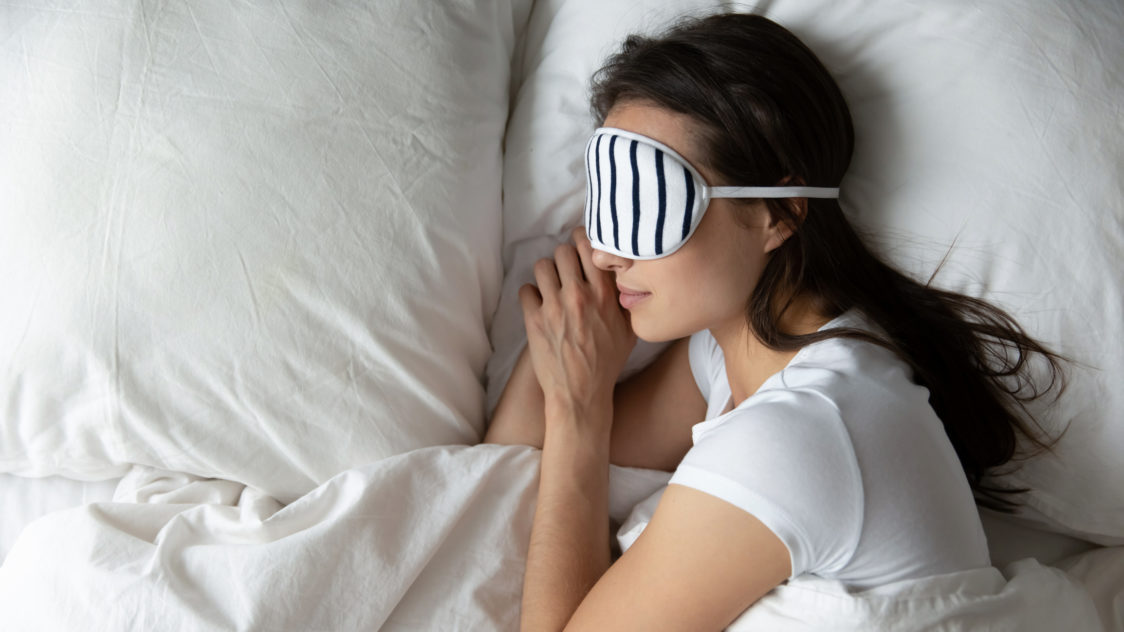
2. Stay away from caffeine in the afternoon
At 6 o’clock, you finish your fifth coffee and at 10 o’clock you wonder why you can’t sleep? If you are more sensitive to caffeine and have trouble falling asleep, you should be very careful about its intake. It is the world’s most popular stimulant and operates on a simple principle.
Our body works in a cycle lasting 24 hours. From the time we get up, adenosine levels rise throughout the day. We can think of it as a kind of barometer that keeps an eye on how long we’ve been up. The higher the levels, the more we want to sleep. If adenosine attaches to its receptors, we start to fall asleep. And that brings us back to the role of caffeine. It is able to attach to these receptors instead of adenosine, blocking its action, which makes us feel alert and fresh.
The highest concentration of caffeine in the body is felt approximately 30 – 45 minutes after drinking coffee, which is useful during a busy day. For supplements, the onset is longer, generally occurring in 60 – 75 minutes. The problem, however, is that it can take as long as six, and even up to ten hours for pregnant women to flush the caffeine out of their bodies. However, each person is individual and, based on the presence of certain genes, we differ in how we react to caffeine. This should be taken into account before you enjoy your afternoon coffee. [6] [20]
However, keep in mind that coffee is not the only source of caffeine. This stimulant can be found in tea, energy drinks, as well as in popular fat burners and pre-workout supplements. If you exercise in the evening, it’s a good idea to opt for kickers and other products that are free of stimulants so that their use doesn’t affect the quality of your sleep.
You might be interested in these products:
3. Do not drink alcohol
Do you have a glass of wine before bed because it helps you fall asleep faster? You’re wrong. Alcohol may help us to relax and speed up falling asleep, but unfortunately, it has been scientifically proven to disrupt sleep patterns, hormones such as melatonin, and our natural circadian rhythm. If you’re aiming for muscle growth, you won’t be happy about the fact that alcohol consumption reduces the nightly production of growth hormone HGH, which can thwart your efforts at the gym. [7-9]
While alcohol can help you fall asleep, in the end, your sleep quality won’t be as high as if you hadn’t. Also keep in mind that it is a diuretic. If you and your friends drink five beers in the evening at a sporting event, you may wake up at night to go to the toilet. If you want to sleep like a baby, we recommend replacing alcohol in the evening with, for example, lemon balm or lavender herbal tea which can have calming effects.
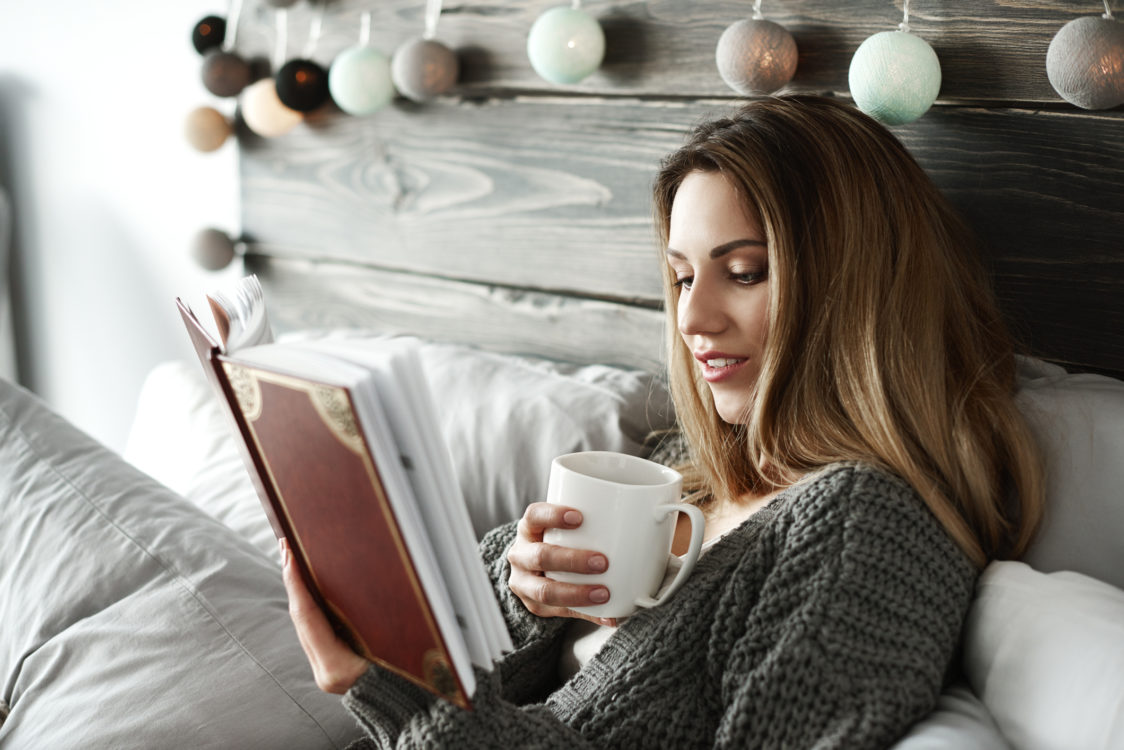
4. Do not eat heavy foods
Have you ever stuffed yourself with cakes, sandwiches, brownies, chips, canapés, crisps or other goodies at a party in the afternoon and then felt full in the evening and could not function? If you overeat like this, not only will you have trouble falling asleep, but the quality of sleep will again be poor. [10-11]
Try to stick to the general principles of healthy eating. Plate up an optimum portion for dinner, which will fill you up but not overload your stomach. After finishing, you should feel about 80% satiated. Try to see if you fall asleep better after eating more or less carbohydrates, and then adjust the distribution of macronutrients throughout the day. In this, each person is different, and so it is best to try what suits you.
If you’re afraid to have carbohydrates in the evening because you think you will gain weight, you shouldn’t miss the article 15 Nutritional Diet Myths That Will Surprise You.
5. Try dietary supplements to aid sleep
Another way to help yourself to a better sleep is to include supplements or herbs, which you can often also get in the form of a concentrated supplement.
What is worth trying?
- Melatonin – often also called the sleep hormone and it has an important function in the body. It signals to our bodies that it’s time for bed. This supplement is so popular, for example, for people who suffer from jet lag when travelling as it helps to reduce the time needed to fall asleep. Start with 500 mcg, but gradually increase serving to 5 mg. [6] [12] [13]
- Magnesium – a mineral the deficiency of which is linked to impaired sleep quality. Its low levels are more likely to occur in athletes who lose it through sweating and in people who eat few magnesium-containing foods. It doesn’t have sedative effects, so you don’t have to worry about getting sleepy after taking magnesium. The standard serving of magnesium is 200 mg, but you can take up to 400 mg. [13] [15]
- Glycine – a non-essential amino acid that may increase your subjective feeling of rest upon waking, according to study results. It is recommended to take 3 g half an hour to an hour before sleep. [13-14]
- Lavender – a plant associated with calming effects. It helps to promote relaxation, fall asleep faster and improve sleep quality. You can try it in the form of oil as part of aromatherapy, supplements or make tea from it. For supplements containing 25-46% linalool, the recommended amount is 80 – 160 mg. [13] [16]
- Valerian – a plant that ranks among the most studied sleep helpers. Like glycine, it is thought to affect the feeling of rest upon awakening. A serving of 450 mg of valeric acid with 0.8 – 1 % valeric acid is usually taken, half an hour to an hour before sleep. [22]
- Lemon balm – a herb with sedative effects that has an effect on calming the body and reducing anxiety. Therefore, it is also often recommended for sleeping difficulties. You can try it in the form of tea or a food supplement. Usually, a 600 mg serving is taken half an hour before bedtime. [21]
- GABA – acts as a neurotransmitter in the central nervous system. It can help reduce the level of stress felt, thereby making it easier to fall asleep. A serving of 3000-5000 mg is usually recommended. [23]
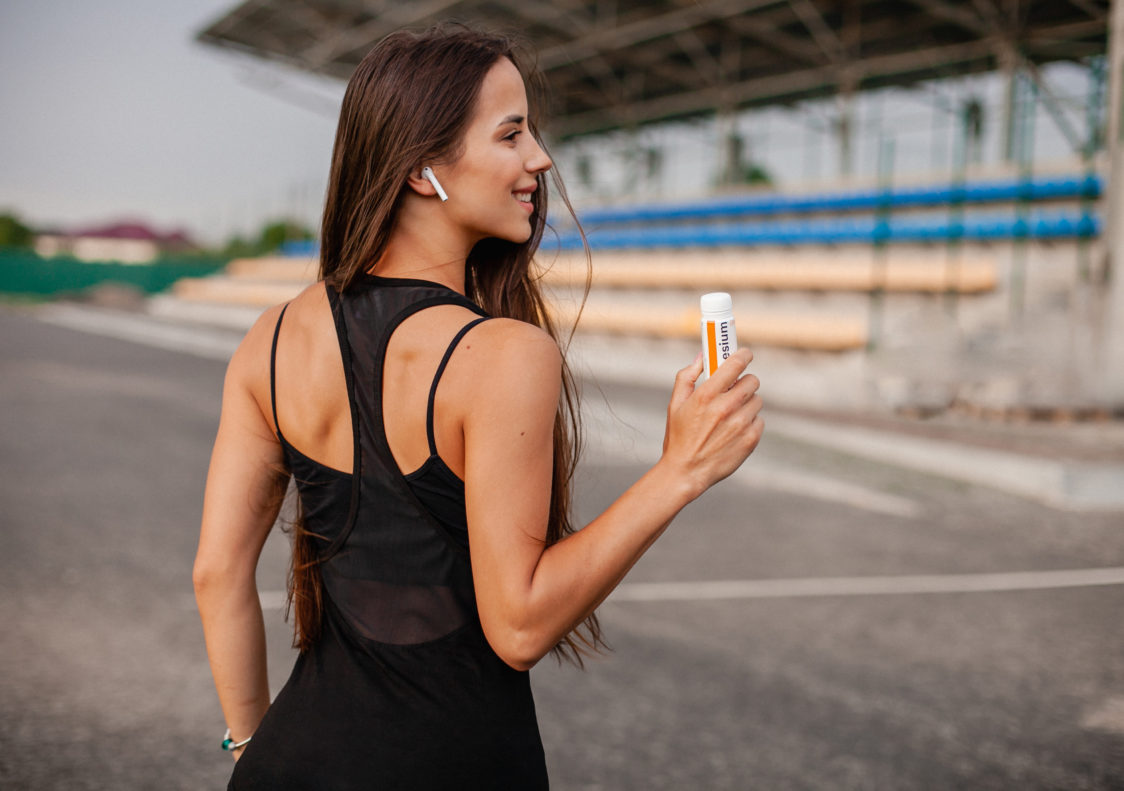
6. Do not exercise in the evening
Regular sporting activity can improve the quality of your sleep. However, if you go to training in the evening and supplement your performance with a pre-workout booster or a fat burner with caffeine, it can have the exact opposite effect on sleep. In the evening, we would therefore recommend that you exclusively use decaffeinated supplements. In addition, physical activity temporarily raises the body’s core temperature, which can also cause more sensitive individuals difficulties falling asleep. [19]
You’re not sure if this problem applies to you? Then there’s nothing easier than keeping a diary for a while, where you’ll write down when you trained and how you fell asleep. If you find that you cannot sleep after sport, it would be ideal to undertake your training in the morning hours. As a last resort, it would be advisable to stop vigorous sports activity no later than three hours before you plan to go to sleep.
7. Go to sleep at the same time each day
As we said above, our body is a sophisticated system that operates on the basis of approximate 24 hour circadian rhythms. However, they differ for each person. Some people are among the so-called morning lark (early birds) because they are more comfortable with getting up early and going to sleep earlier. Other people, on the other hand, are night owls, preferring to stay up late and get up later. Well, then there’s another group of people who don’t have a particular preference for sleep or getting up.
Whatever category you’re in, try to make your routine as regular as possible. Sure, if you’re a nurse who alternates between day and night shifts, it’s not exactly that simple. However, there are many people who could have a regular routine and yet voluntarily disrupt it. If you go to bed and get up at a specific time, your body will get used to it. Then, as this hour approaches, you will start to feel tired and falling asleep will be easier too. This regularity will make it less challenging for you to get up in the morning. If you start setting your alarm for 6am on a regular basis, your body will get used to getting up and may well start to wake up on its own at this time. Try to maintain this routine at the weekend so you don’t disrupt your routine from partying all night and then by lounging in bed all day on Sunday. In the end it would be rather detrimental.
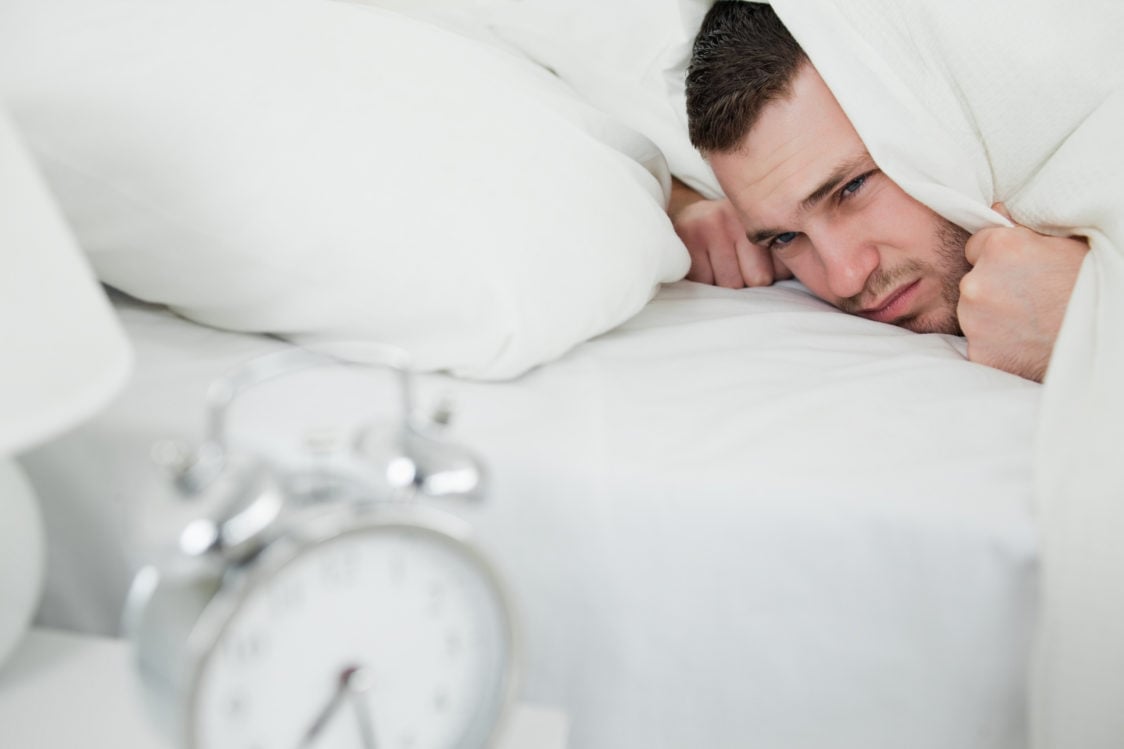
8. Replace your phone with a book
Have you set your phone to night mode and are wondering how you came into contact with blue light? You may not even realize where you’re encountering it. Besides phones, it also lurks in tablets, computers or TV screens. There are several ways to avoid it. For a large percentage of these, there is a possibility to dim this radiation after a certain hour. You can also try using glasses, which should block the blue light to a certain extent. The best way to avoid this light is to cut yourself off from electronics in the evening and devote time to other activities.
Try taking up the chance to read books or magazines, listen to podcasts or write down your thoughts. This change will probably have a positive effect on the quality of your sleep, but it can also act as a form of mental detox. For example, if you make reading your evening ritual, you’ll see that your body gets used to it, and over time, after reading a few pages, you’ll want to sleep automatically. [17-18]
9. Avoid stress in the evening
Stress is a normal part of our lives, and I don’t think we’ll ever get rid of it completely. However, if you want to solve problems with falling asleep and sleeping, try to avoid stressors and situations that generally make you feel negative at least in the evening.
Do you know that when you open a work e-mail, dozens of new responsibilities jump out at you that as well as seeing the backlog thus keeping you awake? You probably won’t be able to solve anything in the evening anyway, it will just overwhelm your mind unnecessarily. Leave your tasks for the morning, when you’ll have a clear head. Equally, try to deal in the earlier hours with awkward conversations, important decisions and other things that would burden you unnecessarily in the evening. Just worry about your comfort and have a calm mind before bed. A supplement called Pink Calm containing six plant extracts may also help.
If you want to learn more about how stress affects us and what helps reduce it, you should not miss the article Why Is Stress Dangerous and How To Reduce It?
10. Relax
This point is closely related to the stress reduction mentioned. If you want to feel relaxed in the evening and sleep better, it is often not enough just to eliminate stress factors. Try to lean towards and include relaxation activities. Why don’t you try mindfulness, a hot bath, a massage from your partner or anything else that’ll calm you down? Listening to soothing music, sounds of nature or relaxation frequencies can also work well. Popular binaural rhythms, for example, will also help soothe. Try for yourself what suits you. Try to include such activities regularly before sleep.
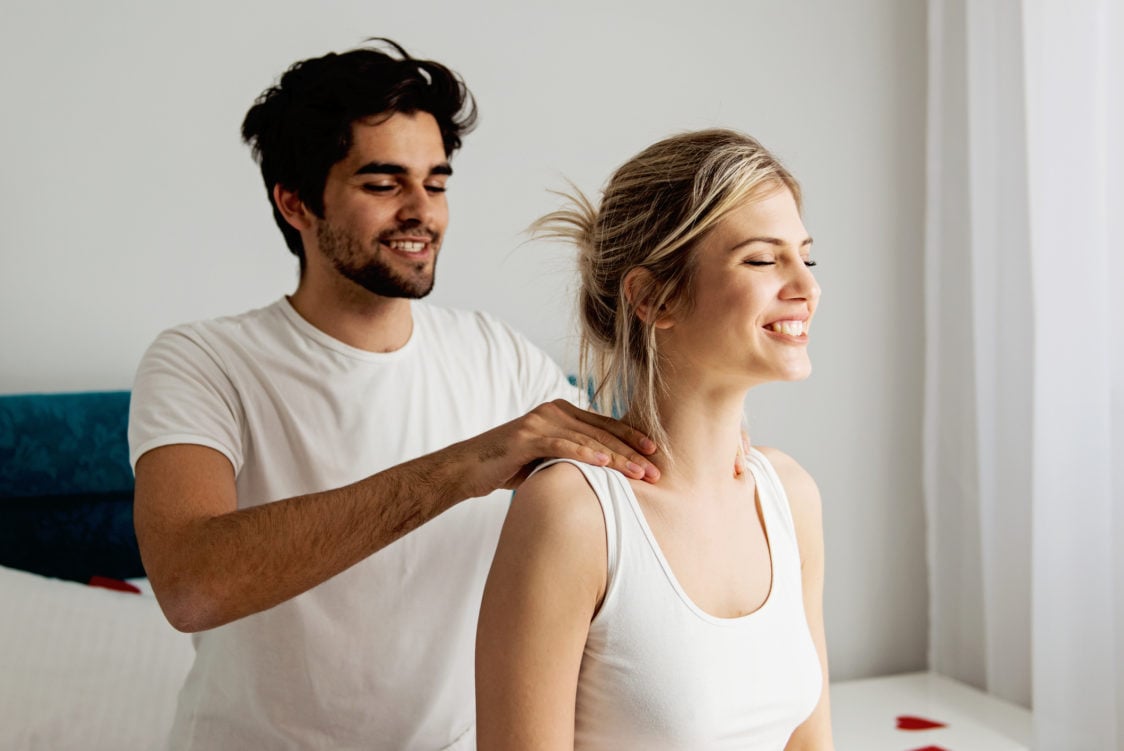
What should you remember?
Although sleep is a perfectly natural thing, for many of us, falling asleep can be quite a task, too. But as you can see, there are many factors that affect sleep, and it’s up to you how you approach them. However, try to gradually apply our advice, and you will see that eventually sweet sleep will come and you will wake up regularly feeling rested.
How are you with sleeping? Do you roll around in bed for hours, or would you fall asleep even if someone was cutting wood with a chainsaw next to you? Share your experiences with us, and if you liked this article, don’t forget to share it amongst your friends. Perhaps you’ll save them a number of sleepless nights.
[1] Logan Foley – Why Do We Need Sleep? – https://www.sleepfoundation.org/how-sleep-works/why-do-we-need-sleep
[2] Sleep and your health – https://medlineplus.gov/ency/patientinstructions/000871.htm
[3] Brain Basics: Understanding Sleep – https://www.ninds.nih.gov/Disorders/Patient-Caregiver-Education/understanding-Sleep
[4] Are You Getting Enough Sleep? – https://www.cdc.gov/sleep/features/getting-enough-sleep.html
[5] Rachel Leproult – Effect of 1 week of sleep restriction on testosterone levels in young healthy men – https://pubmed.ncbi.nlm.nih.gov/21632481/
[6] Matthew Walker – Why We Sleep
[7] Soon-Yeob Park et al. The Effects of Alcohol on Quality of Sleep – https://pubmed.ncbi.nlm.nih.gov/26634095/
[8] VC Taasan et al. – Alcohol increases sleep apnea and oxygen desaturation in asymptomatic men – https://pubmed.ncbi.nlm.nih.gov/7258218/
[9] AC Ekman et al. – Ethanol inhibits melatonin secretion in healthy volunteers in a dose-dependent randomized double blind cross-over study – https://pubmed.ncbi.nlm.nih.gov/8370699/
[10] Shabnam Jalilolghadr et al. – Effect of low and high glycaemic index drink on sleep pattern in children – https://pubmed.ncbi.nlm.nih.gov/22204204/
[11] C H Schenck and M W Mahowald Review of nocturnal sleep-related eating disorders – https://pubmed.ncbi.nlm.nih.gov/8032349/
[12] Commission Regulation (EU) No 432/2012 of 16 May 2012 – https://eur-lex.europa.eu/legal-content/EN/TXT/?uri=cellar%3Ae31cb3a8-910e-4225-a2fd-7bfd84713002
[13] Sleep Quality – https://examine.com/topics/sleep-quality/
[14] Kentaro Inagawa – Subjective effects of glycine ingestion before bedtime on sleep quality – https://link.springer.com/article/10.1111/j.1479-8425.2006.00193.x
[15] Magnesium – https://examine.com/supplements/magnesium/
[16] Lavender – https://examine.com/supplements/lavender/
[17] Jeremy Bigalke et al. – Effect of evening blue light blocking glasses on subjective and objective sleep in healthy adults: A randomized control trial – https://pubmed.ncbi.nlm.nih.gov/33707105/
[18] Karolina Janků et alt. – Block the light and sleep well: Evening blue light filtration as a part of cognitive behavioral therapy for insomnia – https://pubmed.ncbi.nlm.nih.gov/31752544/
[19] Ten tips for better sleep – https://examine.com/nutrition/ten-tips-for-better-sleep/##3-heat
[20] R Knutti, H Rothweiler, C Schlatter – The effect of pregnancy on the pharmacokinetics of caffeine – https://pubmed.ncbi.nlm.nih.gov/6954898/
[21] Melissa officinalis – https://examine.com/supplements/melissa-officinalis/
[22] Valeriana officinalis – https://examine.com/supplements/valeriana-officinalis/
[23] GABA – https://examine.com/supplements/gaba/

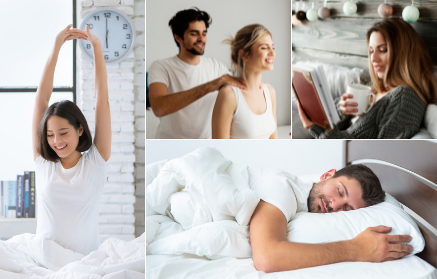
Add a comment